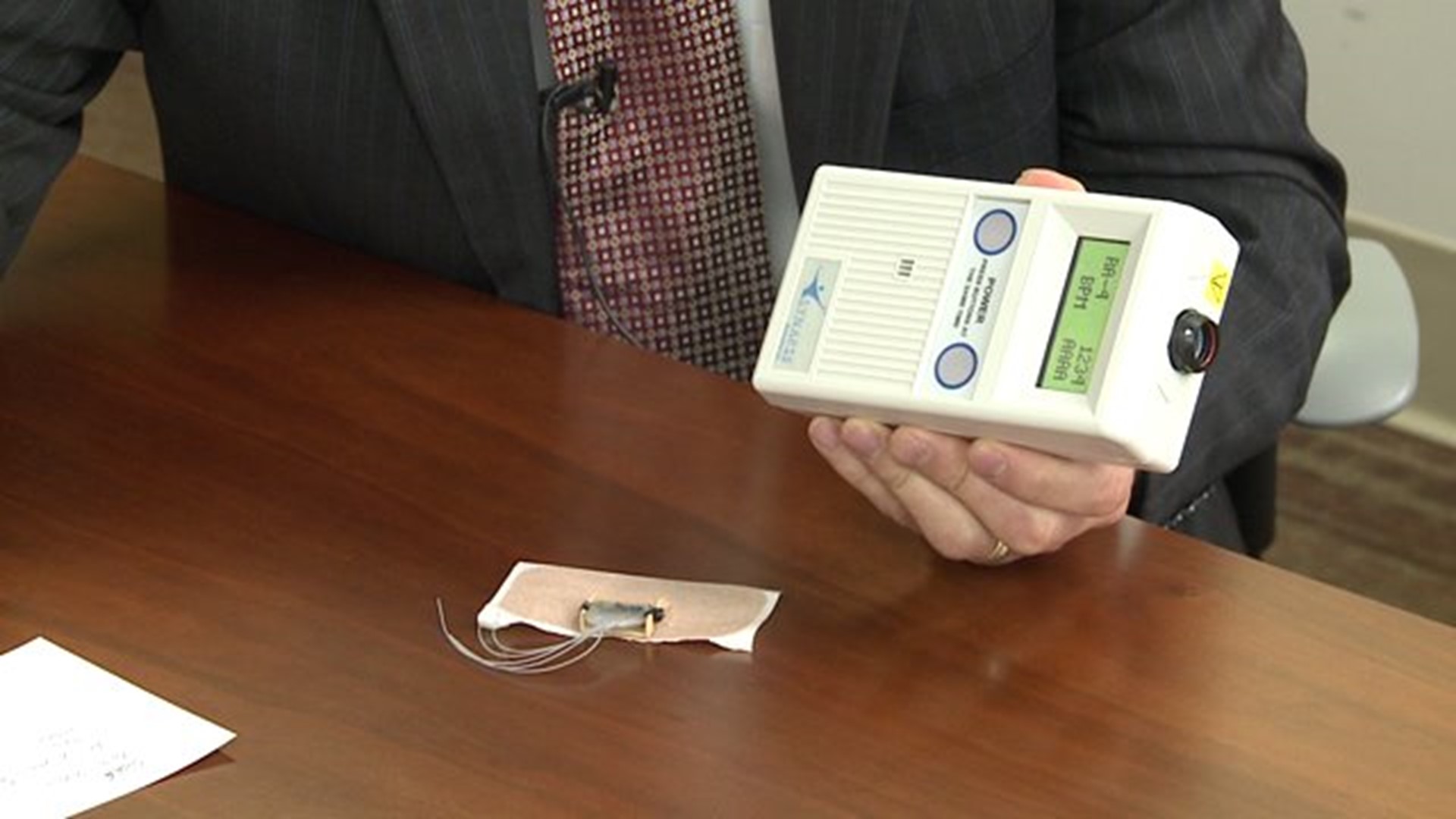ALS, or Lou Gehrig's Disease, is a neuromuscular disease that causes someone to progressively lose muscle strength. There is no cure, no way to stop the degeneration. But there is a device, approved by the FDA just a few years ago, doctors say can help a patient breathe better, and maybe even live a little longer.
You could call 63-year-old David Bloom a trailblazer. The man from North Bend, in Clinton County, remembers a visit to his family doctor two and a half years ago.
"I noticed I was having some muscle spasms or twitching in my arm. No pain or nothing, just happened to mention it to her," Bloom remembers.
He was eventually diagnosed with ALS, commonly known as Lou Gherig's disease. And he says his breathing started to worsen shortly after.
"At night when you lay down I noticed I breathe pretty heavy," Bloom told us.
It's a common issue when it comes to ALS, according to Dr. Anthony Petrick and Dr. Scott Friedenberg at Geisinger Bloomsburg Hospital, because it's the muscles of the diaphragm that assist in breathing. Right away Dr. Petrick knew David Bloom would be a good candidate for a new procedure for which he had trained, but never performed: implanting what's called a Neu-RX diaphragm pacing system.
"The internal hardware is very tiny, very easy to place in very tiny incisions with very minimal pain and very little stress or strain the patient has to suffer," said Dr. Anthony Petrick, Director of Minimally Invasive Surgery.
Dr. Petrick described it as sort of like a pacemaker, only for the muscles of the diaphragm. Using small incisions, wires are implanted on the muscles of the diaphragm and come out in the abdomen. They attach to this stimulator, which a patient turns on a few times a day, for about an hour at
"This isn't a cure. This just allows our patients to have a more normal and better quality of life for a longer period of time, and we hope a few years longer and maybe even longer than that," he said.
"Dr. Bloom and his wife are very brave. This is the first procedure we have done here, and to take that step is really heroic," added Dr. Scott Friedenberg, Director of Neuromuscular Diseases.
But Bloom says he had no hesitation. He is glad he trusted his doctors, and now wears the device all the time. He says he notices his breathing is much steadier.
"I get a better night's sleep."
Dr. Friedenberg is the head of a special ALS clinic at Geisinger Bloomsburg. There's another at Geisinger Wyoming Valley near Wilkes-Barre. The clinic allows ALS patients and their families to be seen by a variety of experts, not just doctors, including therapists, nutritionists, and psychologists.

